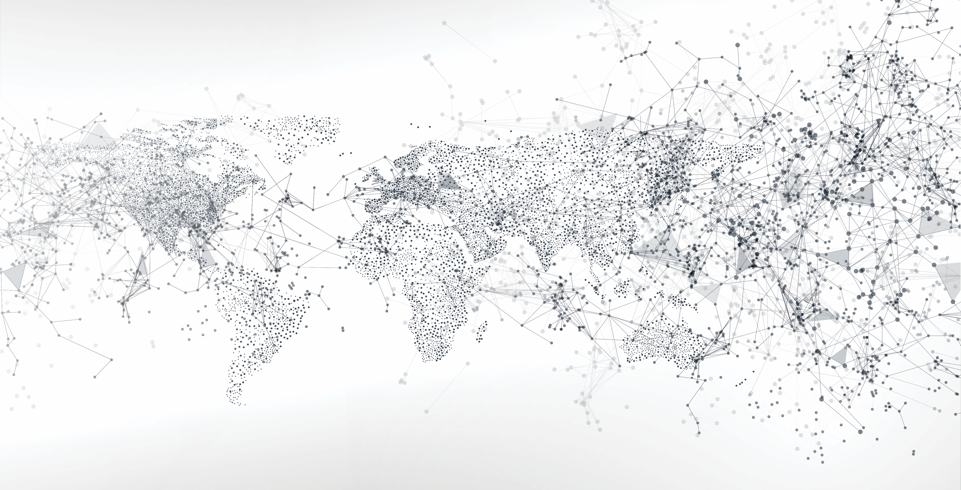Eight years ago, a man in Abbottabad, Pakistan, tweeted about the US special forces raid that killed Osama bin Laden. The moment was instrumental in fueling a new market for social discovery and signal detection: if you could find the first social media posts about a breaking news event, you had a valuable jump on the story.
Assuming, of course, it’s actually real.
With bin Laden, it turned out to be real, but times have changed. Social media has become increasingly cluttered with mis- and disinformation. In the early stages of breaking news, you have a difficult choice. You can act immediately on early, unverified signals and hope you make the right judgment call. Or you can wait critical minutes for solid information.
This is the classic speed-accuracy gap. Social discovery and data mining services are speedy, but they’re noisy, unreliable and costly to run. Legacy incident alerting services are mostly accurate, but they’re slow, lagging well behind social media and even reporting from major media organizations.
The hidden costs of unverified signals
Once a time saver, social discovery tools increasingly create more work. The more signals you discover, the more time and effort you need to spend to verify, geolocate and assess relevancy. Not only is everyone working harder for a slower result, but they’re often duplicating effort across similar companies working to verify the same thing. As the complexity of verification increases, you need to hire more specialized analysts, driving up costs even further.
Then there’s the cost of responding to false positives: those seemingly-significant events that turn out to be minor or nothing at all. You’re under pressure to move quickly, but not make the wrong call.
The reality is being the first to know often doesn’t translate into being the first to act. There must be a better way.
Verification at the speed of social media
We began working on the speed-accuracy gap a decade ago at @breakingnews and BreakingNews.com, a unit of NBC News. Then last year, we launched Factal, the first and only company to deliver verified breaking news at the velocity of social media.
The secret isn’t a single magic algorithm (just ask the social and search platforms). Instead, Factal is a real-time fusion of artificial intelligence, on-duty journalists and a vibrant member community.
We start with our signal detection and analysis engine, drawing from our data partners at Twitter, thousands of news organizations and a host of other public data sources across 36 languages and counting. Then we layer on our 24/7 newsroom of experienced journalists who have worked at news organizations like BBC News, Bloomberg, Breaking News, NBC News and more. Finally, we add a community of our members, the largest real-time community of security professionals in the world.
The net result is lightning-fast, accurate and precisely-geolocated breaking news – with deep customization and filtering – that no other company can match. You’re no longer faced with that difficult choice between speed and accuracy, and your team can focus on what matters, saving critical time and getting more done.
The journalism advantage
Verification is much more than blue check marks and rewritten Tweets. Factal’s experienced, multilingual journalists draw from multiple sources for each news event, weighing track records and factoring in political motivations. Written in ready-to-distribute AP style, our editors point out inconsistencies, provide vital context and prioritize critical details – fast.
We also point to original sources, share our internal editorial resources and make quick corrections whenever we make an error – even if that error originated from other sources.
Meanwhile, legacy alerting services often withhold sourcing, guard their methods and hide or downplay errors. Their editorial teams operate in isolation, which puts you at risk of making bad decisions.
After all, if you’re going to trust us to verify what’s happening, we need to be open and transparent about what we do. Factal is founded by award-winning journalists on a public service mission to protect people from harm, and our company is grounded in a comprehensive code of ethics that’s unrivaled in the industry.
We’re safer together
Together with Factal’s high-speed verification, we do something radically different that taps the collective muscle of corporate security and disaster response professionals around the world.
Thanks to the suggestions of our early beta members, we created a real-time community that connects our corporate and NGO members together with our editors on duty. That’s because many global news events – like severe weather or a mass shooting – impact more than one organization at a time. By collaborating in a secure environment, our members can ask questions and share critical information in those early minutes.
Looking to the (near) future
It’s safe to predict that mis- and disinformation will become even more prevalent and sophisticated in the years to come. At the same time, a global economic downturn is inevitable – it’s just a question of when.
We’ve designed Factal for this future. Much more than another tool, Factal speeds decision-making, saves money and boosts productivity. As our membership grows – and it’s growing fast – the self-reinforcing power of community expands the capabilities of each of our members, ushering in a new era of collaboration.
If you’d like to learn more about Factal, please email me at cory@factal.com. Visit our home page to request a free trial, and feel free to follow us on Twitter or Linkedin. We also have a popular free newsletter called Factal Forecast.

